March 08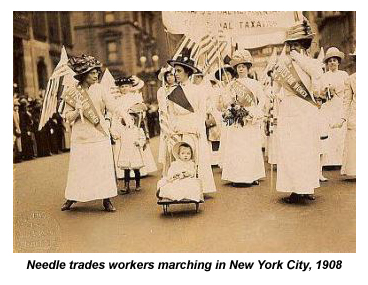
1908 — Thousands of New York needle trades workers demonstrate for higher wages, shorter workday, and end to child labor. The demonstration became the basis for International Women’s Day.
1924 — Three explosions at a Utah Fuel Co. mine in Castle Gate, Utah, kill 171. Fifty of the fatalities were native-born Greeks, 25 were Italians, 32 English or Scots, 12 Welsh, four Japanese, and three Austrians (or South Slavs). The youngest victim was 15; the oldest, 73.
1926 — New York members of the Fur and Leather Workers Union, many of them women, strike for better pay and conditions. They persevere despite beatings by police, winning a 10-percent wage increase and five-day work week.
1932 — The Norris-LaGuardia Anti-Injunction Act took effect on this day. It limits the ability of federal judges to issue injunctions against workers and unions involved in labor disputes.
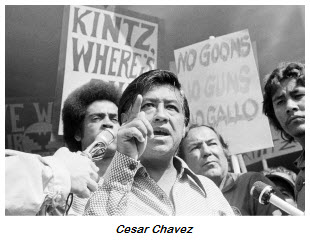 1979 — César Chávez leads 5,000 striking farmworkers on a march through the streets of Salinas, Calif. 1979 — César Chávez leads 5,000 striking farmworkers on a march through the streets of Salinas, Calif.
March 09
1912 — The Westmoreland County (Pa.) Coal Strike — known as the "Slovak strike" because some 70 percent of the 15,000 strikers were Slovakian immigrants — begins on this date and continues for nearly 16 months before ending in defeat. Sixteen miners and family members were killed during the strike.
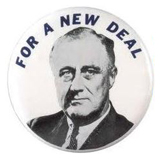
1933 — Spurred by President Franklin D. Roosevelt, the U.S. Congress begins its 100 days of enacting New Deal legislation. Just one of many programs established to help Americans survive the Great Depression: The Civilian Conservation Corps, which put 2.5 million young men on the government payroll to help in national conservation and infrastructure projects.
1974 — Work begins on the $8 billion, 800-mile-long Alaska Oil pipeline connecting oil fields in northern Alaska to the sea port at Valdez. Tens of thousands of people worked on the pipeline, enduring long hours, cold temperatures and brutal conditions. At least 32 died on the job.
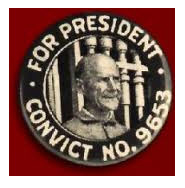 March 10 March 10
1919 — U.S. Supreme Court upholds espionage conviction of labor leader and socialist Eugene V. Debs. Debs was jailed for speaking out against World War I. Campaigning for president from his Atlanta jail cell, he won 3.4 percent of the vote — nearly a million votes.
1941 — New York City bus drivers, members of the Transport Workers Union, go on strike. After 12 days of no 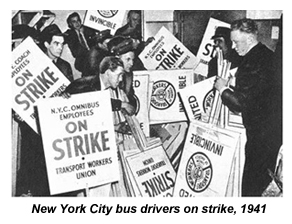 buses—and a large show of force by Irish-American strikers at the St. Patrick’s Day parade — Mayor Fiorello La Guardia orders arbitration. buses—and a large show of force by Irish-American strikers at the St. Patrick’s Day parade — Mayor Fiorello La Guardia orders arbitration.
1968 — United Farm Workers leader César Chávez breaks a 24-day fast, by doctor’s order, at a mass in Delano, California’s public park. Several thousand supporters are at his side, including Sen. Robert Kennedy. Chavez called it “a fast for non-violence and a call to sacrifice."
Labor History is brought to you by your union and Union Communication Services — Worker Institute at Cornell ILR, publisher of the Steward Update print edition newsletter, which provides union stewards with helpful information and advice.
|








 Paused2023 Q2 Signalman's Journal2023 Q1 Signalman's Journal2022 Q4 Signalman's Journal2022 Q3 Signalman's Journal2022 Q2 Signalman's Journal
Paused2023 Q2 Signalman's Journal2023 Q1 Signalman's Journal2022 Q4 Signalman's Journal2022 Q3 Signalman's Journal2022 Q2 Signalman's Journal









 1979 — César Chávez leads 5,000 striking farmworkers on a march through the streets of Salinas, Calif.
1979 — César Chávez leads 5,000 striking farmworkers on a march through the streets of Salinas, Calif.
 March 10
March 10 buses—and a large show of force by Irish-American strikers at the St. Patrick’s Day parade — Mayor Fiorello La Guardia orders arbitration.
buses—and a large show of force by Irish-American strikers at the St. Patrick’s Day parade — Mayor Fiorello La Guardia orders arbitration.